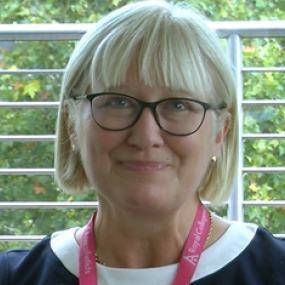Quality matters – Building confidence in patient information

Chair of the RCoA’s Patient Information Group, Dr Hilary Swales, details the College’s involvement in the Patient Information Forum’s accreditation scheme.
How do we know which information we can trust? The pandemic has taught us that it is more important than ever that the public has access to the right information for their needs. To provide consent and engage in shared decision making, patients about to have a medical procedure, need to know what it involves and any potential risks.
The RCoA’s Patient Information Group has developed over 40 patient information leaflets covering a wide range of topics relating to all aspects of anaesthesia in collaboration with patient representatives and relevant specialist societies. Our resources are also reviewed by the Professional Standards Advisory Group (PSAG) comprising Council members and senior representatives of other organisations involved at the College.
In 2019, we were approached by Patient Information Forum (PIF) to take part in the pilot for their accreditation scheme for health information. The scheme sought to provide a measure of quality for patients and the public. PIF are a membership organisation that promotes and champions high-quality information, with over 1,000 members across 300 organisations to date. They perform an educational role through regular workshops and webinars to raise the standards for health information nationally. We were delighted to be the only medical royal college to be invited to be part of the pilot.
During the assessment, PIF reviewed the patient information production process at the College against their set criteria for attaining the accreditation, including:
- systems – has the organisation used consistent and documented processes?
- involvement of users – do resources meet patient need and have they been tested on users?
- evidence – do resources include the most up-to-date evidence with clinical experts involved to verify clinical content?
- feedback – have we given patients the opportunity to provide feedback on resources they have used?
- layout and design – are the resources easy to access and navigate?
- impact – are the resources making a difference for patients and health professionals?
Luckily, there was much we were already doing well. Working with collaborators such as the Association of Anaesthetists, the Association of Paediatric Anaesthetists, and Regional Anaesthesia UK, we ensured that the clinical content of our resources reflected the most up-to-date evidence.
Additionally, we brought lay representatives into the Patient Information Group to review our resources. Importantly, we have a brilliant Publications team at the College who oversees the design and layout of our leaflets.
The assessment showed that we needed to make improvements in some areas. One of the main actions for us was to produce a detailed process document detailing all steps of how we develop the patient information resources and how we met the standards.
We also needed to be better at measuring the impact of our resources. This is why our surveys to preoperative assessment leads and clinics are so important in helping us understand how our information is used and how it can be improved. I am very grateful to all preoperative assessment leads and colleagues who completed our last survey.
We took on board the suggestions from PIF and made all the necessary changes. The process document mentioned above will ensure consistency of quality across resources and future-proof the production of our resources to the highest standards for years to come. We also produced a proforma to be used if we receive requests for new resources. The proforma will ask authors to demonstrate aspects including the need for the resource, the literature available and how they can ensure that a lay person will be involved throughout the project.
The RCoA Patient information resources received accreditation for the first time in November 2019. Following recertification in February 2021, our resources will continue to display the symbol of the PIF TICK, representing our dedication to producing information about anaesthesia that is reliable, accessible and evidence based.
Dr Hilary Swales
